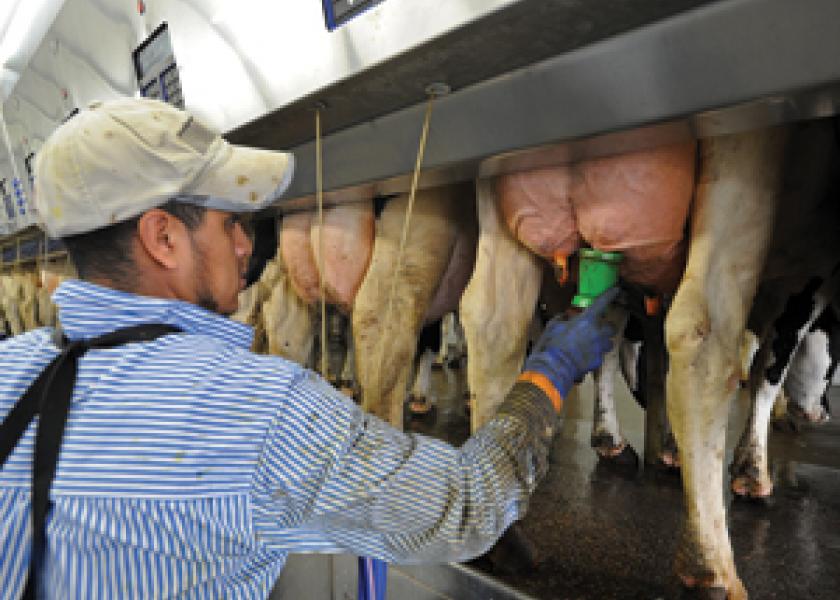Improve Your Mastitis Treatment Aim

Milk culture can be used as a tool to improve your knowledge of the bacteria causing mastitis on your farm. Learn about it at an upcoming workshop.
By Phil Durst, Michigan State University
Why is it that some cases of mastitis don’t cure, or worse, pop back up again after you thought they cured? Maybe you treated bacteria that don’t respond well to treatment. Maybe you treated bacteria that were already dead. The problem with treating blindly is that too often, today’s desired cure becomes tomorrow’s chance for another infection. That’s not good for the cow, that’s not good for you economically, and that poses a food quality risk. There is a better way.
Know your opponent through milk culture. When you understand what bacteria is causing mastitis, your success of treatment will improve, and the cases you elect to treat will decrease.
At Jon-De Farms, Inc. of Baldwin, Wisc., they have been using on-farm milk culture for more than ten years. They culture cows with clinical mastitis, and then using their DHI report monthly, they culture any cows identified as new infections and chronic cows to see if they can be treated. "We use our culture results to reduce the number of cows treated; we don’t treat cows with gram negative bacteria or cows that have already been treated for the same culture in the same quarter." owner Todd Doornik said.
On-farm milk culturing enables you to determine sooner, often within 24 to 48 hours, whether cows are infected with bacteria that are more likely to respond to treatment. Increasingly, there are more farms today that have found it a valuable practice in their mastitis control program.
Whether it is a dairy owner, family member, employee, neighbor or technician doing the culturing, it takes someone who is committed to good technique, an investigative mindset and a willingness to learn for milk culturing to be successful. Beyond that, the investment and set-up required are minimal.
Michigan State University Extension is offering an opportunity to learn about the organisms that cause mastitis and how to identify them using milk culturing. The "Mastitis Bacteriology & Herd Decision Making" workshop is planned for Saturday, Aug. 3 at the MSU College of Veterinary Medicine. This hands-on workshop is for those who have never cultured bacteria from milk as well as for those who want to improve their skills.
Ron Erskine, Andres Contreras and Phil Durst will lead the workshop, along with the MSU Mastitis Lab personnel. The workshop will include classroom discussion on the pathogens and how to prevent mastitis in herds specific to the organisms infecting that herd. There will also be laboratory time to practice preparing culture plates and reading the results.
One participant of the last workshop said, "This workshop increased my knowledge on milk culturing as well as my confidence!"
"This class gives great exposure to a useful mastitis management tool that might work really well on farm" was what another participant said.
Maybe, that could be your farm.
For More Information
Read the latest dairy news.







